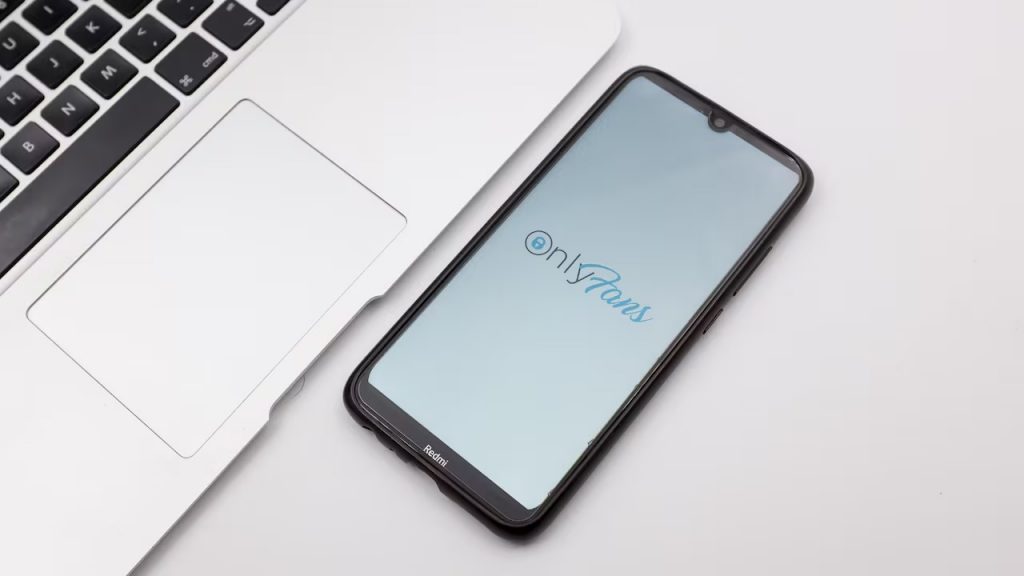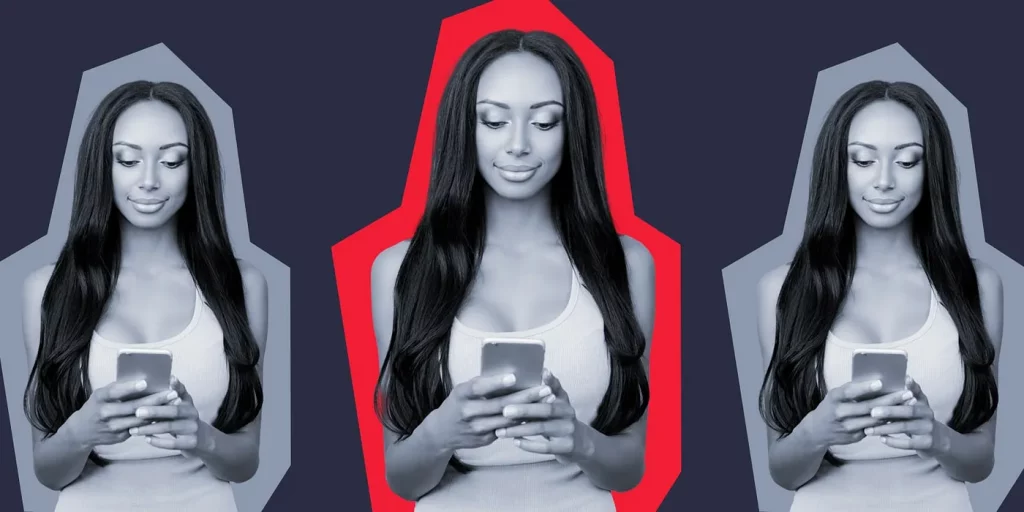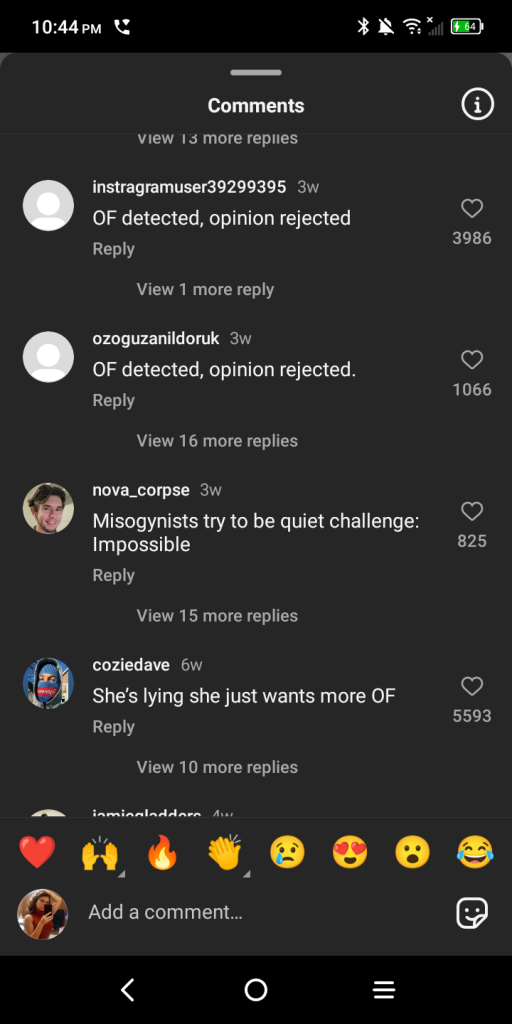Ever come across a comment on Instagram or TikTok saying “OnlyFans detected, opinion rejected”. It’s become a common phrase for men to dismiss women who create content on OnlyFans. Despite the platform granting women autonomy and economic agency, men are persistent in discrediting and silencing women’s voices.
It has become a shorthand way to dismiss and discredit women who create content on OnlyFans, reducing them to their online persona and stripping them of intellectual credibility. The platform grants women autonomy and financial agency — allowing them to monetise their content on their own terms. This comment reflects a deeper cultural bias that continues to police women’s voices, particularly when they assert control over their image.

The Internet Was Supposed to Be Liberating — So Why Isn’t It?
Jia Tolentino argues that the internet is a space of both self-presentation and commercial enterprise. Social media platforms allow individuals—particularly women—to curate their identities and bypass traditional gatekeepers. OnlyFans is an extension of this: it enables women to monetise their content on their own terms, providing financial independence outside conventional employment structures.
Yet, as Tolentino highlights, the internet is not a neutral or purely empowering space. It mirrors and amplifies offline biases. Women who take control of their self-presentation online often face backlash, their legitimacy questioned simply because they profit from their image. The phrase “OnlyFans detected, opinion rejected” embodies this contradiction: society both encourages and condemns women’s self-expression.
The Double Standard
Erving Goffman’s theory of self-presentation offers further insight into why women on OnlyFans face such dismissal. He describes identity as a performance, shaped by external perceptions and social expectations. In digital spaces, this performance becomes even more complex. When women diverge from the “acceptable” image—particularly in ways that challenge traditional femininity—they are punished.
This is evident in how women associated with OnlyFans are judged, their opinions dismissed outright because their self-presentation does not align with societal norms. Women disrupt this balance by directly monetising their image, asserting their autonomy in a way that unsettles societal norms. This rejection is not just about the platform itself; it is about the broader discomfort with women who refuse to conform to restrictive standards of femininity.

Why This Matters
The phrase “OnlyFans detected, opinion rejected” highlights a persistent issue within digital media: the dismissal of women’s voices based on their refusal to conform to traditional gender norms. While platforms like OnlyFans offer women the opportunity to assert their agency, they simultaneously expose these women to intense scrutiny and marginalisation.
So, How Do We Change It?
To create a more equitable digital culture, we must challenge the idea that sexual autonomy and intellectual credibility are mutually exclusive. Women should not have to conform to outdated ideals of respectability to be heard. By confronting these biases and broadening our understanding of self-representation, we can work towards a digital landscape where all women’s voices are valued—regardless of the platforms they choose to engage with. Only by dismantling these barriers can we begin to ensure that women’s identities are respected, heard, and valued in their full complexity.



Recent Comments